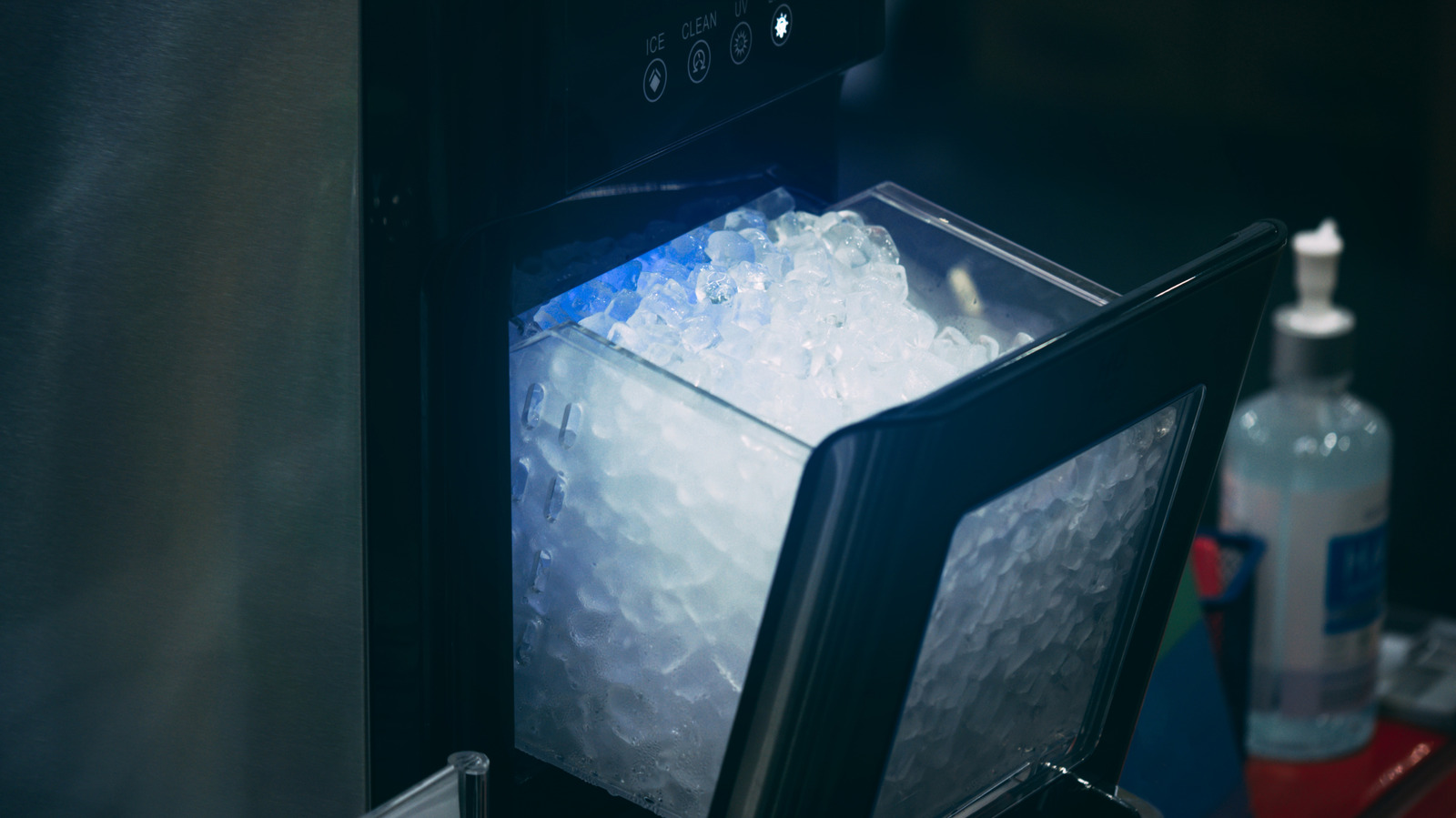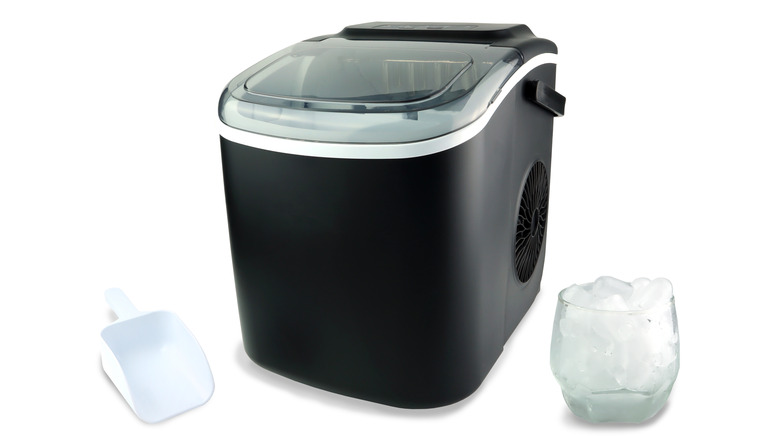If you’ve noticed that the ice in your countertop ice maker melts quickly, don’t panic — it doesn’t necessarily mean that the appliance is broken. There are a surprising number of ice cube mistakes that can occur, and this is a common concern among users, especially those new to these compact ice-producing machines. Countertop ice makers are convenient and efficient, but they work differently from a traditional freezer. Understanding why your ice might be melting can help you avoid unnecessary repairs or replacements.
Most countertop ice makers produce soft, hollow, bullet-shaped ice. While this type of ice freezes quickly, it also melts more quickly than dense, solid cubes. Hollow ice has more surface area exposed to air, which causes it to melt faster, especially when transferred to a room-temperature container. This is also why nugget ice is a bad choice for cocktails. But it isn’t a sign of malfunction — it’s simply the nature of how these machines are designed to work quickly and efficiently.
Where you place your ice maker matters more than you might think. If the appliance is located near a heat source, like an oven, stovetop, or even in direct sunlight, it can warm the internal chamber, causing the ice to melt faster. Even if your kitchen feels cool, localized heat near the unit can affect its internal temperature. Ideally, place your ice maker in a cool, well-ventilated area to prevent heat from speeding up the melting process.
Poor ventilation or leaks could be to blame
Countertop ice makers rely on proper airflow to keep internal temperatures cool. If the appliance is pushed against a wall or other appliances, it might not be able to vent heat effectively. Dust buildup on the air intake or exhaust can also restrict airflow, causing the unit to overheat slightly and melt ice more quickly. Always leave a few inches of space around the unit and keep vents clean and clear for optimal performance.
Unlike refrigerator ice makers, most countertop ice makers aren’t designed to store ice long-term. They lack strong insulation or freezing capabilities and are intended to make ice on demand. If you’re not using the ice immediately, transfer it to the freezer to prevent melting. Melting ice doesn’t mean that your countertop ice maker is broken, but if you are in the market for a new ice maker anyway, then peruse Tasting Table’s top choices.






